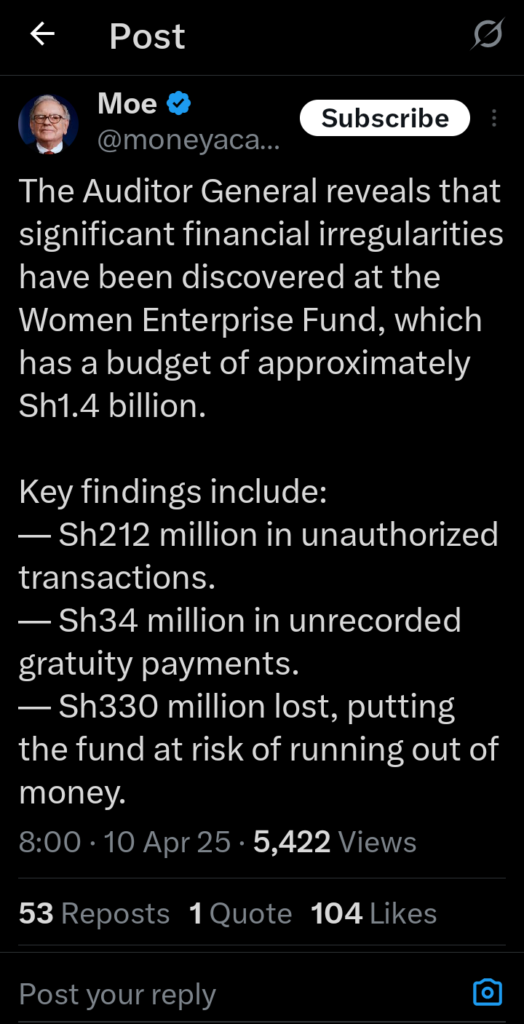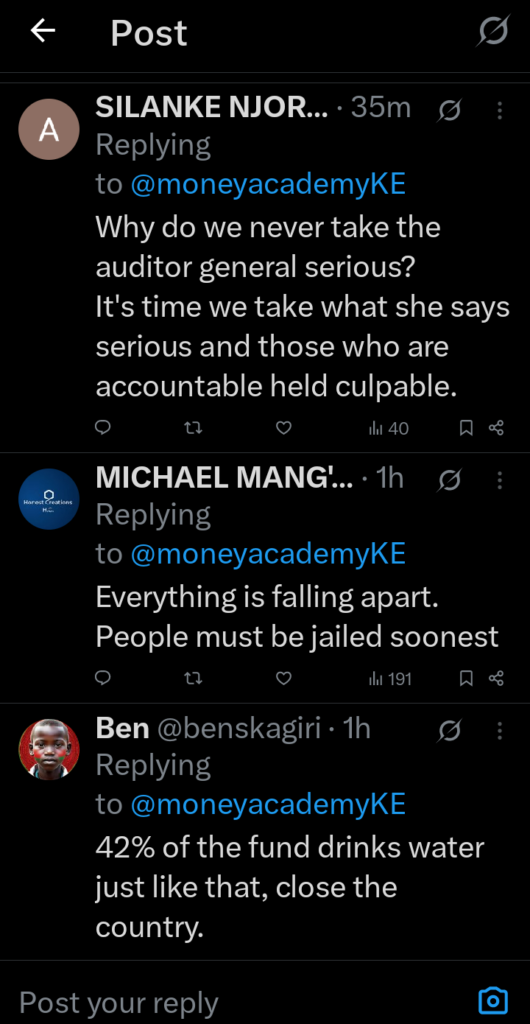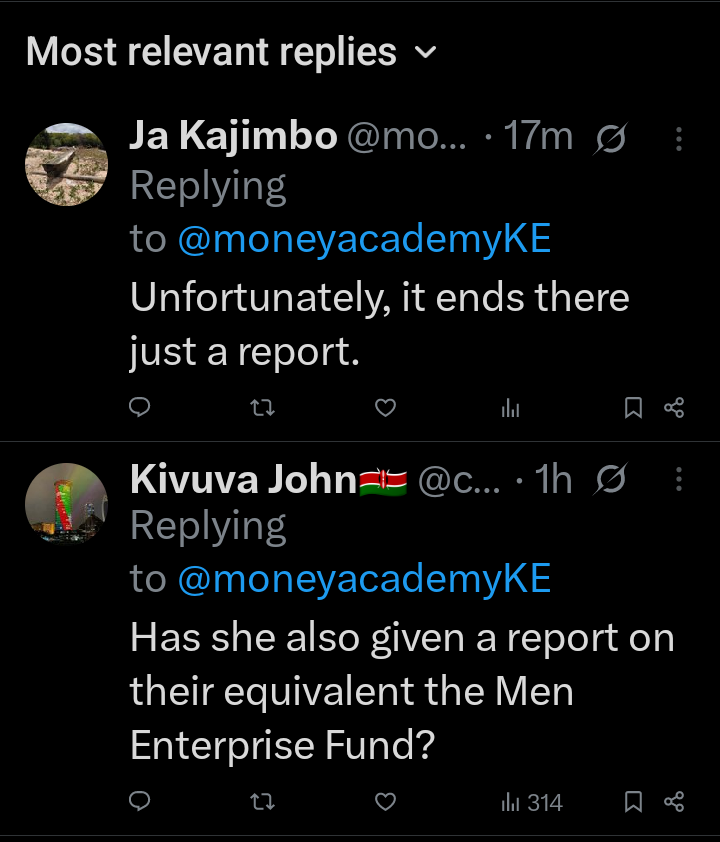The Women Enterprise Fund (WEF), a government initiative designed to empower women entrepreneurs in Kenya, is facing serious financial irregularities. With a budget of approximately Sh1.4 billion, the fund has been at the center of a recent audit by the Auditor General, which uncovered massive mismanagement.
The findings suggest unauthorized transactions, unexplained losses, and operational inefficiencies that may undermine the fund’s ability to support women-led businesses.
Background of the Women Enterprise Fund
Established in 2007, the Women Enterprise Fund aims to provide affordable credit to women across Kenya to help them start or expand their businesses. Operating under the Ministry of Public Service, Youth, and Gender Affairs, the fund was expected to be a cornerstone of economic empowerment for women.
However, an audit for the year ending June 30, 2024, has raised serious concerns about the fund’s financial management and its ability to meet its goals.
Key Findings from the Audit
The audit revealed several alarming issues, with the most concerning being unauthorized financial transactions and massive discrepancies in the fund’s accounting records.
Unauthorized Transactions: The audit found that Sh212 million was moved through mobile paybill transactions without proper authorization. This raises questions about the transparency of the fund’s financial processes.
Undocumented Gratuity Payments: Another Sh34 million was paid out as gratuities, but there was no documentation to justify these payments. Without proper records, it is impossible to determine if the funds were used appropriately.
Significant Losses: The fund suffered Sh330 million in losses during the audited period. These losses have placed the Women Enterprise Fund at risk of technical insolvency, meaning it could soon be unable to meet its financial obligations.

Other Financial Discrepancies
The audit didn’t stop at these major issues. It also uncovered other financial discrepancies:
Expenditure Variances: A total of Sh1.2 billion in expenditure variances were noted. This indicates that the fund’s financial statements did not match the actual records, suggesting possible mismanagement.
High Operational Costs: The fund spent 94% of its revenue on employee costs, far exceeding the recommended 35%.
This suggests that resources meant to support women entrepreneurs were instead being used inefficiently on internal operations.
Excessive Board Meetings: The fund held 43 board meetings in a single year, which is far more than necessary. This points to potential governance issues, as excessive meetings could distract from the core mission of supporting women’s businesses.
Operational and Governance Issues
In addition to financial mismanagement, the audit revealed operational inefficiencies within the fund. The high number of board meetings, combined with soaring employee costs, indicates that the fund’s resources are being misdirected.
Despite the substantial budget, little seems to be done to support the women entrepreneurs who are supposed to benefit from the fund’s initiatives.
Implications for Women Entrepreneurs
The Women Enterprise Fund is crucial for women entrepreneurs in Kenya, many of whom face barriers to accessing finance and other resources needed to grow their businesses. The financial irregularities and operational inefficiencies uncovered by the audit could severely limit the fund’s ability to provide loans and support services.
This could result in fewer opportunities for women entrepreneurs and undermine the fund’s core mission.

A Call for Accountability and Reform
These findings have sparked a call for action. It is essential that the government investigates these financial irregularities, holds those responsible accountable, and takes steps to reform the management of the Women Enterprise Fund.
Only through transparency, proper governance, and a focus on the fund’s intended goals can the Women Enterprise Fund regain its credibility and continue to empower women in Kenya.

As the country strives to foster gender equality and economic empowerment, ensuring the proper use of public funds will be crucial in achieving these objectives. The situation at WEF serves as a reminder of the need for continuous oversight and accountability in all government initiatives aimed at social and economic development.





















Add Comment